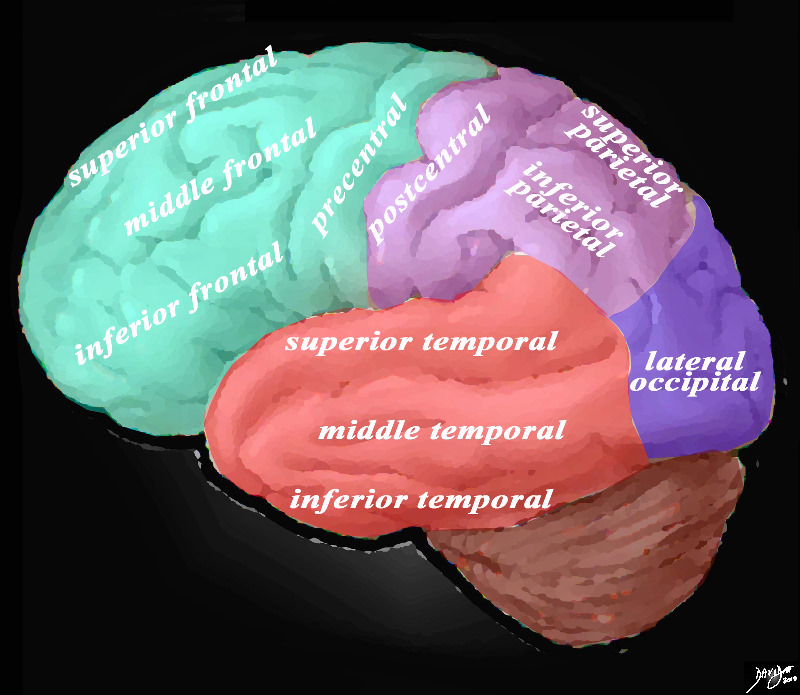Occipital Gyri
Copyright 2009
Introduction
The gyri of the lateral surface of the occipital lobe are usually referred to as lateral occipital gyri.
On the medial surface, the wedge-shaped area between the parietooccipital and calcarine sulci is called the cuneus (L. wedge).
The gyrus inferior to the calcarine sulcus is the lingual gyrus.
The lingual gyrus is adjacent to the posterior portion of the occipitotemporal gyrus and is separated from it by the collateral sulcus.
It is continuous anteriorly with the parahippocampal gyrus.
The transition from lingual to parahippocampal gyrus occurs at the isthmus of the cingulate gyrus.

Overview of the Forebrain Gyri – Lateral External View |
|
The lateral view of the brain shows the frontal lobe (green) parietal lobe (light mauve), the occipital lobe (purple) and the temporal lobe (red) In this view the frontal lobe gyri that are visible are; superior frontal, middle frontal, inferior frontal and precentral gyri. The parietal gyri include the post central, superior parietal and inferior parietal. The occipital gyrus that is visible is the lateral occipital. The temporal lobe gyri include the superior, middle and inferior temporal gyri. Courtesy Ashley Davidoff MD Copyright 2010 83029d05g01.8s |
